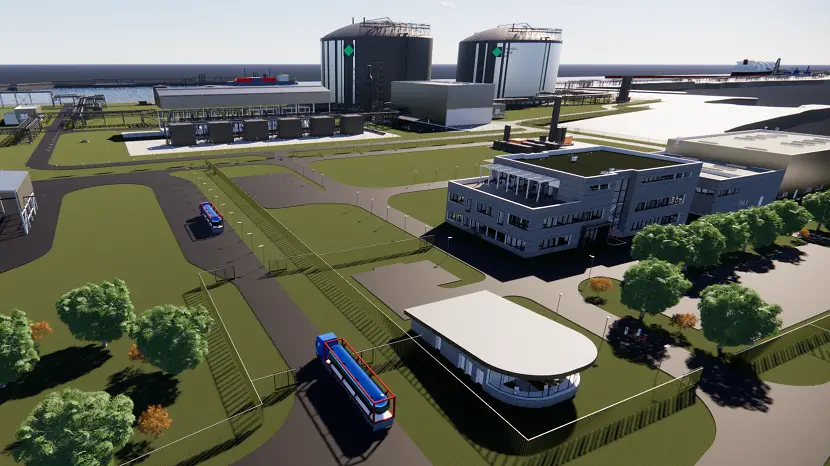The Hanseatic Energy Hub (HEH) noted that construction of the Stade liquefied natural gas (LNG) terminal has begun. This was ahead of schedule after preliminary measures were accepted by authorities.
The federal government and the state of Lower Saxony each pledged €100 million to finance the Stade energy port, and the Lower Saxony State Agency for Water Management, Coastal Protection, and Nature Conservation approved an early start to the preparatory measures for the LNG jetty construction. These include building dike crossings and sheet pile walls, as well as building a loading platform. The port company Niedersachsen Ports (NPorts) is planning and building the jetty.
Read Also: Vistula Spit canal linking Polish port to Baltic Sea opens
Stade liquefied natural gas terminal is designed to be future-flexible
The energy port’s early construction removes the need for one of the five floating storage and regasification units (FSRUs) chartered by the German federal government to dock in Stade and feed gas into the German grid as early as the end of 2023. The Stade liquefied natural gas terminal will then serve as a landing point for the Hanseatic Energy Hub beginning in 2026. According to the developer, the onshore terminal is emission-free in operation and is designed to be future-flexible.
Individual marketing of the hub’s capacities is currently underway following the conclusion of the Binding Open Season with binding booking requests. The EU Commission recently confirmed the terminal’s exemption from regulation. The exemption applies to a natural gas throughput capacity of 13.3 billion cubic meters per year.
Last week, on September 20, work on another LNG import terminal to secure Germany’s energy supplies began. Deutsche ReGas broke ground on the ‘Deutsche Ostsee,’ an LNG terminal in Lubmin, Germany’s northeast. Germany is also working on large projects in Wilhelmshaven and Brunsbüttel to reduce its dependence on Russian gas.

Leave a Reply